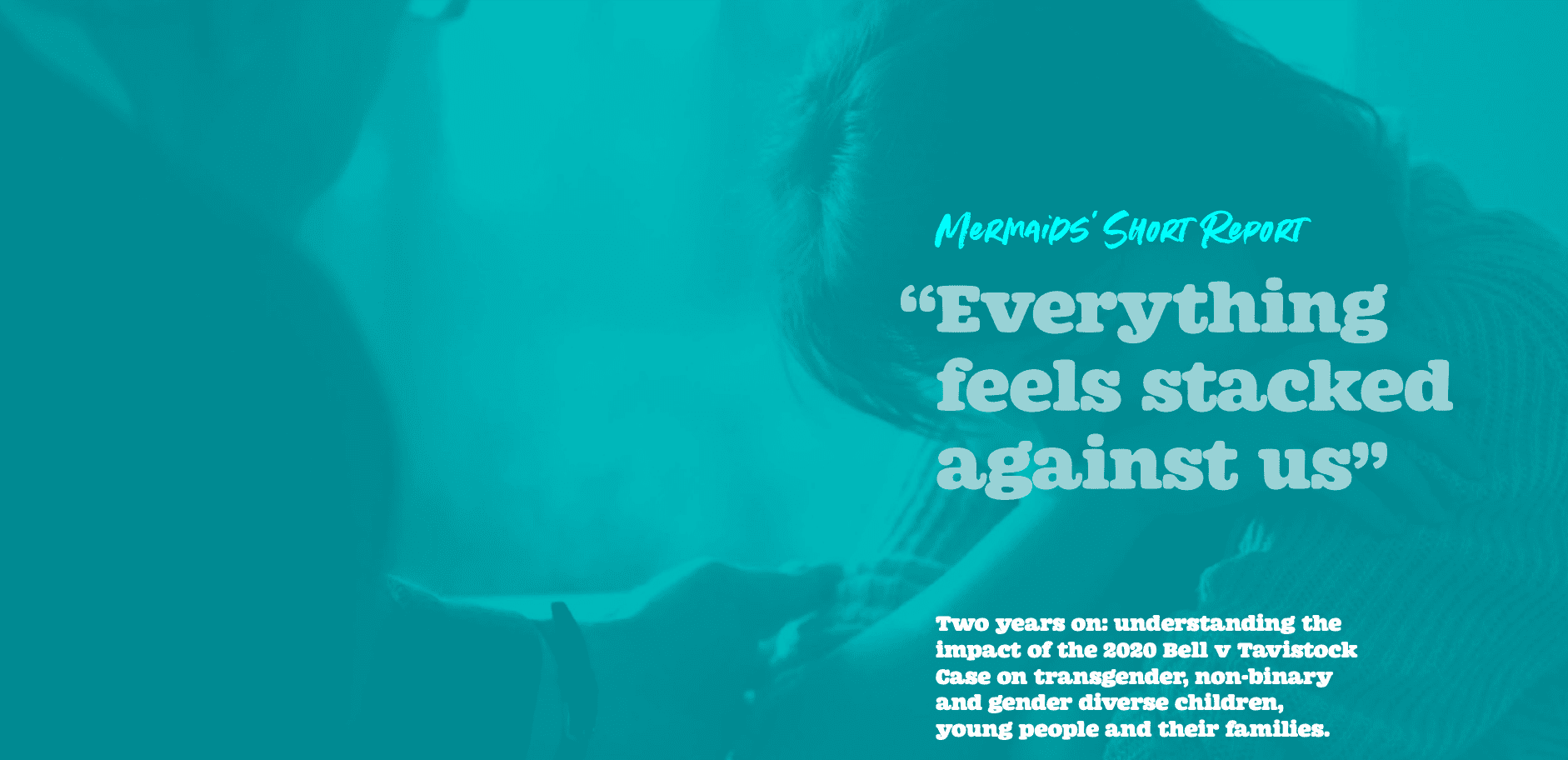
Two years on from the Bell v Tavistock judgement, Mermaids has produced a report reflecting on its impact for trans young people and their families
In October 2019, a judicial review (or complaint) was made in the UK on whether people under 18 years of age could consent to puberty blockers (‘Bell v Tavistock’) and on 1 December 2020, the court ruled in Bell’s favour. Immediately NHS England froze access to new puberty blocker prescriptions, leaving young people in limbo.
Two years on from that judgement, the impact continues to be felt, highlighted in a new report, published today (1 December 2022).
This research by Mermaids, Gendered Intelligence, LGBT Foundation and Dr Anna Carlile (Goldsmiths, University of London) asked parents and carers of young trans and non-binary people what impact the case had on their family.
We found that closing the pathways available, even temporarily, had a major impact on the well-being of respondents and their children.
In September 2021, the judgement was overturned – but the impact continues to be felt broadly and deeply by our communities.
The need to strive to protect access to critical healthcare is more important now than ever, in the courts and beyond.
3 key findings
- 9 out of 10 people said the outcome of Bell v Tavistock had negatively affected their mental health
- Many parents felt powerless and guilty that they could not help their child more.
- People worried that transphobia in the UK was only going to get worse due to Bell v Tavistock
Dr Abby Barras, researcher at Mermaids, said: “Despite Bell v Tavistock being permanently overturned, the repercussions of the case are still felt today, and accessing gender-affirming healthcare for young trans people remains challenging, to put it mildly.
“This report offers an opportunity to remember why the work Mermaids and the LGBTQIA+ community do in reducing those challenges is so critical.
“It is easy to think young people exist in a vacuum. But they don’t. They have families and support networks who they rely on and who love them.
“This report is a clear reminder to cherish and value these young people and their support networks, because when the safety net of gender-affirming care is abruptly cut off, we will see not just one young person struggling – we’ll see their whole support network.”
Kai O’Doherty, Head of Policy & Research, added: “This report highlights the intense impact of even a short time without access to safe, supportive trans healthcare for young people and their families. It also gives me hope: that what we are fighting for is critical and that we can and will succeed.”
